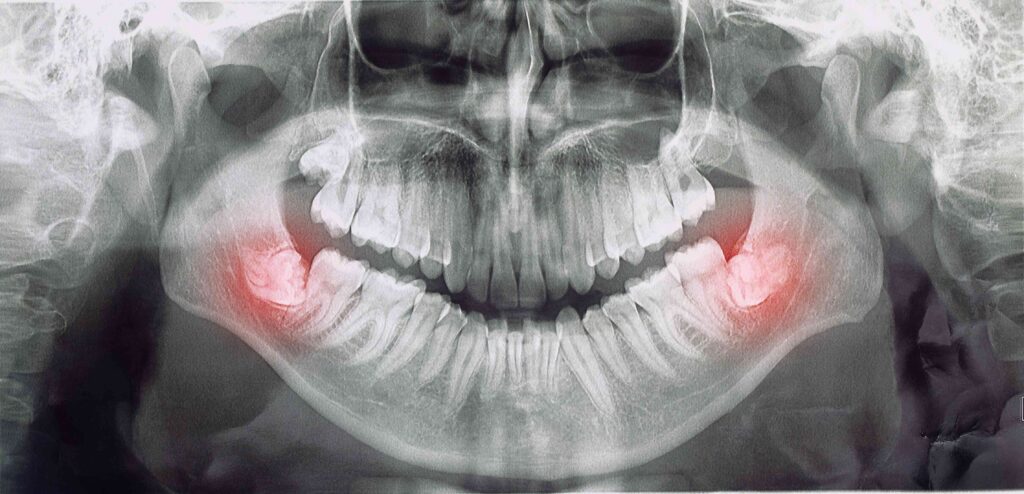
Wisdom teeth, also known as the third molars, were useful tools for our ancient ancestors, but these days, many people end up having them extracted for one reason or another. Ultimately, they have become more of a nuisance than helpful to our smile. In fact, some people don’t even develop all of their wisdom teeth. Continue reading to learn more about wisdom teeth, how many you may have, and what you should do about them.
Why Do We Have Wisdom Teeth?
The majority of adults develop 32 permanent teeth that erupt throughout late childhood into adolescence. Wisdom teeth are the last ones to erupt, usually by the age of 21. They used to be essential for humans due to our ancestor’s prehistoric diet of roots, leaves, meat, and nuts. However, the wisdom teeth are no longer needed for our modern diet. These days, the food we eat is softer thanks to modern cooking techniques and tools.
Does Everyone Have Wisdom Teeth?
Most people develop four wisdom teeth. However, this isn’t always the case. Some adults only end up with one, two, or three third molars while others develop none at all. A 2015 article published in the Dental Research Journal estimates that somewhere between 5% and 37% of people are missing one or more of their wisdom teeth. Keep in mind that just because you can’t see your wisdom teeth doesn’t mean you don’t have them. A dental X-ray is the best way to tell how many wisdom teeth you have.
Why Do Wisdom Teeth Need to Be Removed?
Many adults don’t have enough room in their mouths to accommodate wisdom teeth. Here are some issues that can occur that warrant extraction:
- Infection: If your wisdom teeth are trapped beneath the gums, they are impacted. This could lead to an infection called “pericoronitis.” This results in painful swelling and difficulty chewing and swallowing.
- Cysts: Non-infectious diseases can also occur due to an impacted wisdom tooth. They are called “cysts.” These fluid-filled balloons develop inside the jawbone because of impacted teeth. They can expand over time and cause damage to the jawbone and nearby teeth.
- Adjacent Tooth Damage: A problem that many people encounter when their wisdom teeth come in is that they are so far back in the mouth that they are difficult to clear properly. When plaque and tartar is left behand, it can result in gum disease and tooth decay to the wisdom teeth and surrounding teeth.
Wisdom teeth used to be a great help, but this isn’t so much the case today. Some people even stopped developing them. The best way to find out if you have four wisdom teeth and if they should be extracted is by seeing your dentist. They will monitor your wisdom teeth to decide the best course of action.
About the Author
Dr. Praveena Muddana earned her dental doctorate from the NYU College of Dentistry. Currently, she is a proud member of the American Dental Association, Wisconsin Dental Association, and the American Academy of Cosmetic Dentistry. For more information on wisdom teeth or wisdom tooth extractions, or to schedule an appointment at her dental office in Grafton, visit her website or call (972) 517-8300.
